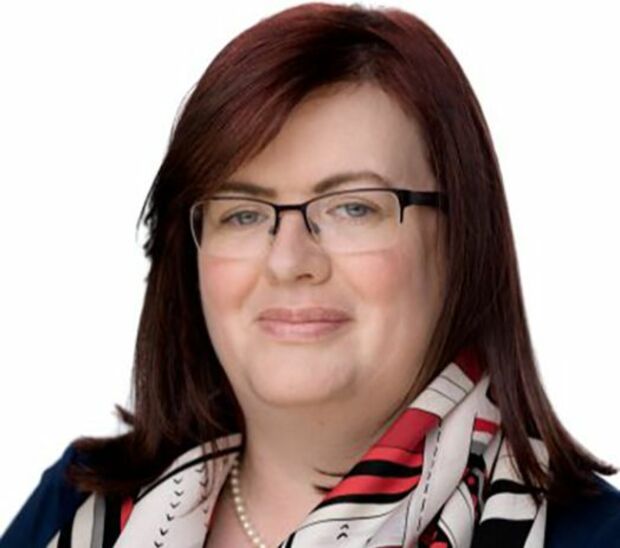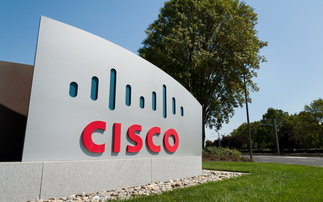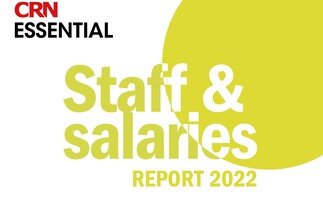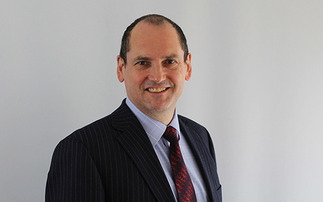
Having sold his previous venture, Quantiq, to Avanade in 2021, Stuart Fenton made a channel return this month by acquiring Glasgow-based Akari Solutions.
The move was accelerated by Fenton's desire to give a new home to staff laid off by vendors in recent weeks.
CRN caught up with the channel veteran to find out more about his plans. In the interview, he opens up on:
- Why he was disappointed by the recent vendor layoffs
- His rationale for acquiring Akari
- The two 'curious epiphanies' he experienced when sifting through over 2,000 CVs
- His advice for prospective candidates who take more than 15 seconds to explain
- His ambitions for building a partner with up to 500 staff
Hi Stuart. Before you announced the Akari deal, you were quite vocal about vendor layoffs on LinkedIn. Why is that?
During Covid, a lot of companies - including Quantiq - made a decision not to lay anyone off and weather the storm. Keeping these people employed, looking after them in tough times, was the right thing to do.
Given that was such a short time ago, I wondered why the same doesn't apply now. If there's an energy crisis, and suddenly there's a bit of a downturn, it didn't seem right to lay people off when there is still a lot of opportunity in the market. It was an easy decision to lay off, rather than work hard to refocus these people in different areas.
That was really the basis of my post. It received around 400,000 views. I don't think I've ever had that many views. And I got several thousand messages, many from people begging for jobs.
The first impression I had was that there's a lot of talent out here.
The hardest thing at my last three companies - Quantiq, Insight and Microwarehouse - was recruiting. And suddenly, there's a load of people out there. So I thought: maybe I should help some of these people.
That drove me to complete an acquisition that I may not have done. A lot of the people that wrote to me were in different countries - Australia, Vietnam, Singapore, lots from the US - and I couldn't do anything for them immediately. But quite a few were from the UK. So that's where I started. That was the logic behind buying Akari.
Now the bubble has burst somewhat, are people's wage expectations a bit more realistic?
No. The wage expectations haven't changed at all.
I had two curious epiphanies when looking at all the people laid off who wrote to me. The first was that people's financial expectations were unchanged. They would say ‘I was on x amount, and that's what I need to live on today'. That was a surprise.
And the second thing was that a very large number of people had roles that needed a lot of explanation. They had these curious titles where you couldn't tell if they managed product, sold a product or delivered a product. A lot of the people who've been let go would appear to be in these curious middle management roles. Lots of people wrote to me and said, ‘I could really help you grow your business', rather than saying ‘I'm a brilliant salesperson' or ‘I'm brilliant at product development', or ‘I can deliver a service'.
There's been this exponential explosion of titles that are hard to understand.
So the biggest advice I've started to give people is to describe your role in a way that someone's going to want to hire you. In the go-to-market space, I think you should just say ‘I'm a sales manager', ‘I'm a sales director', ‘I'm a VP of sales'. But if you're a chief commercial officer, you're not going to get a job, because there are probably only 10 of those roles being recruited right now.
In the IT industry, where you have an industry that has been so incredibly successful for so incredibly long, you start moving away from where these organisations all started. They were product, sales and delivery organisations. And suddenly you have all these curious little functions around the business doing something that, at some point, somebody thought was a really good idea. But in tougher financial conditions, they're the first roles that get shot. Anyone who takes more than 15 seconds to explain their role should probably think about it more carefully. I would suggest they move into a more traditional role where they can actually engage clients, deliver a service, or develop a product.

Why did you choose Akari and what are your plans now?
There are three really fast-growth areas for Microsoft if you look at their financial results for the last few quarters. Firstly Azure. Secondly, Dynamics, which is a product area I love. And the third is Power Platform.
There was no particularly dominant player in delivering or developing Power Platform solutions or IP. Therefore, the entry point into that market was quite low. The opportunity to become one of the biggest players in that market was doable in a relatively short period of time.
And also, you get a great deal of support from Microsoft, who are passionate about the product and the technology.
So that's why I started looking for Power Platform companies. I met a number of them and concluded that Akari had visionary leadership - but it lacked investment. What they did invest in were probably the wrong things, because they couldn't really invest in what I would - or even they would - consider the right things. I put [former Quantiq COO] Andrea Bright in the chair, but the plan is to back this team [including former CEO, Margaret Totten - picture above - who is now CMO] and build the capacity to deliver what they deliver today and to build broader capabilities where we can expand slightly beyond the Power Platform. We also want to build sales and marketing capacity so we can tell more people about it.
It's a small business of circa 20 people today. How do we get it to a business of 100 people, 200 people, 500 people? That's the plan that we've put together.












